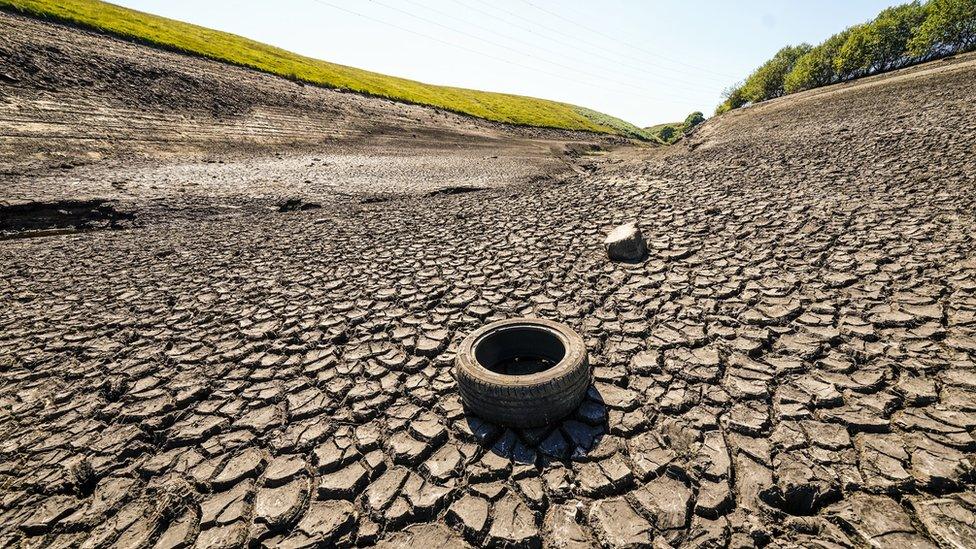Yorkshire's reservoirs recover from 2022 heatwave
- Published
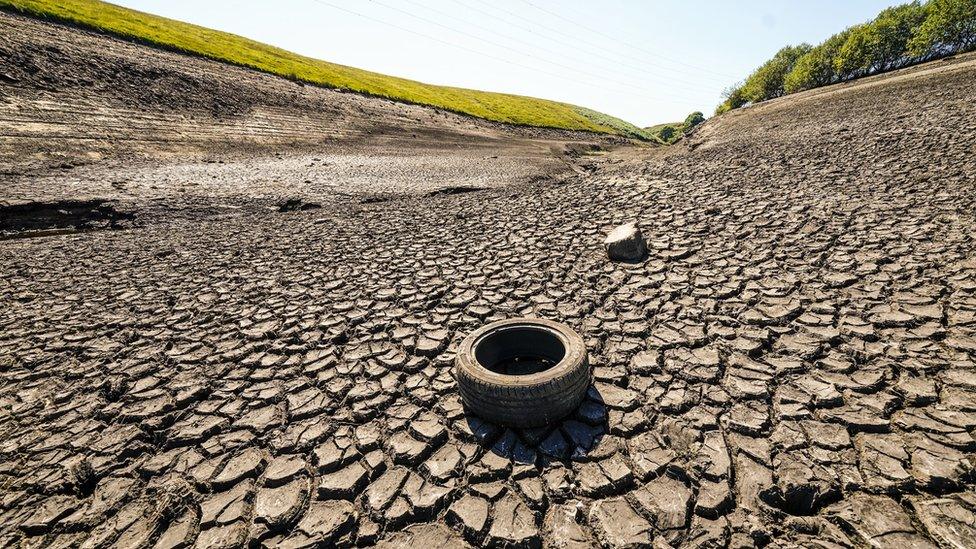
Baitings Reservoir in West Yorkshire pictured during last summer
Reservoir levels have recovered from last year's drought, reducing the likelihood of another hosepipe ban this summer, Yorkshire Water has said.
The utility firm said its reservoirs were now 95% full.
It added the county was in "a better position than last year" thanks to a wet spring, water conservation and ongoing work to tackle leaks.
Households endured a three-month hosepipe ban last year, as the region baked in temperatures up to 40C (104F).
A Yorkshire Water spokesperson said: "Our reservoir levels have recovered from last year's drought.
"A wetter than usual March and April, increased leakage activity, and our customers' efforts to reduce water use means we move into the warmer months in a better position than last year."
The UK's highest-ever temperature - 40.3C (104.5F) - was recorded in Coningsby in Lincolnshire on 19 July 2022.
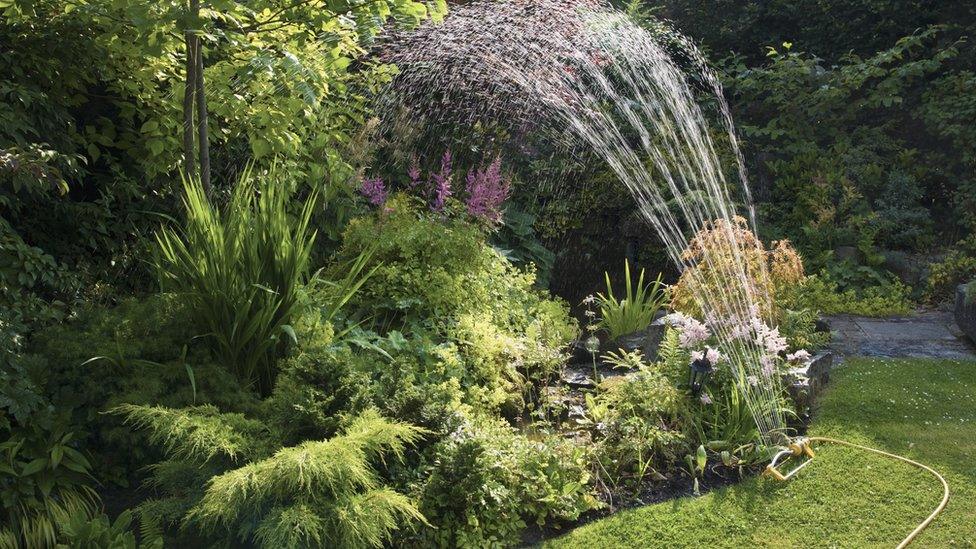
The hosepipe ban was introduced in August following high temperatures and months of low rainfall
In response to reservoir levels falling below 50%, Yorkshire Water imposed strict restrictions that were not lifted until 6 December.
The Environment Agency officially moved Yorkshire to drought status on 15 August following six months of below average rainfall combined with high temperatures, which affected swathes of the country.
The county was eventually moved out of drought on 16 January this year.
Some parts of the country are still facing uncertainty over their water supply.
Last month, South West Water said extended restrictions - in place since last August - would help replenish water supplies ahead of the summer.
Meanwhile, Yorkshire Water said even though reservoir levels were healthy, people should still try and save water.
The firm's spokesperson said: "Small changes can add up to make a huge difference, like using a watering can instead of a hosepipe or making a water butt to help feed plants."

Analysis by Paul Hudson, BBC Look North's climate correspondent
It has been a remarkable turnaround for Yorkshire's reservoirs.
The long hot summer of 2022, when temperatures reached 40C (104F) in our region for the first time on record, placed massive demand on water supplies.
Rainfall in parts of our region was the lowest for more than 100 years and led to a hosepipe ban being implemented in August, the first since the drought of 1995.
In September, such was the concern that reservoirs in the Keighley area could run completely dry, an emergency pipeline was laid by Yorkshire Water, at a cost over £2m, which linked reservoirs in Calderdale to Ponden reservoir near Haworth.

Follow BBC East Yorkshire and Lincolnshire on Facebook, external, Twitter, external, and Instagram, external. Send your story ideas to yorkslincs.news@bbc.co.uk, external.
Related topics
- Published6 December 2022
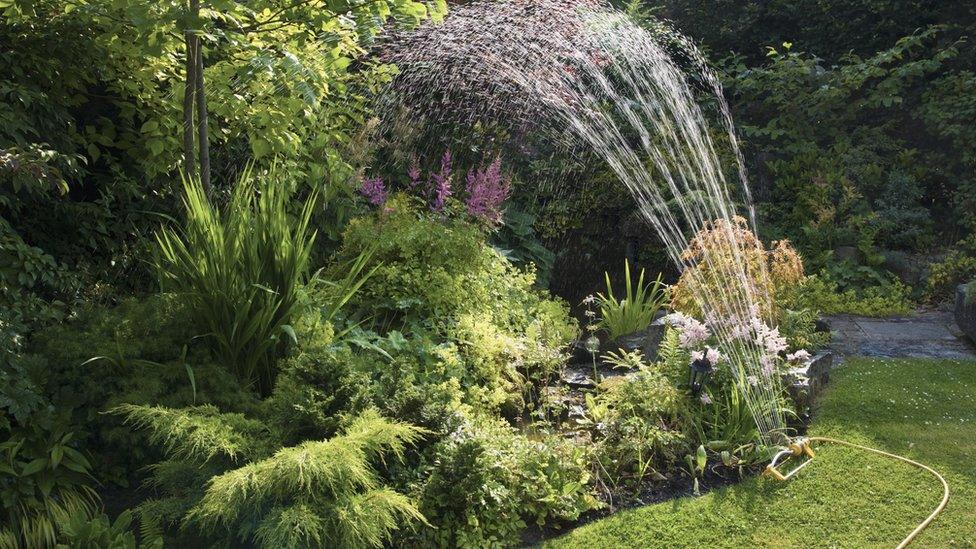
- Published19 July 2022
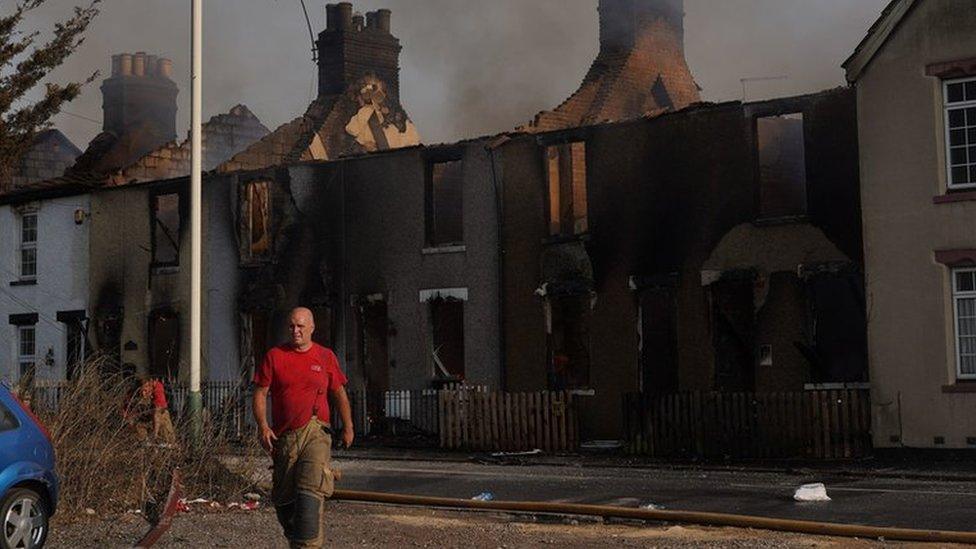
- Published16 August 2022
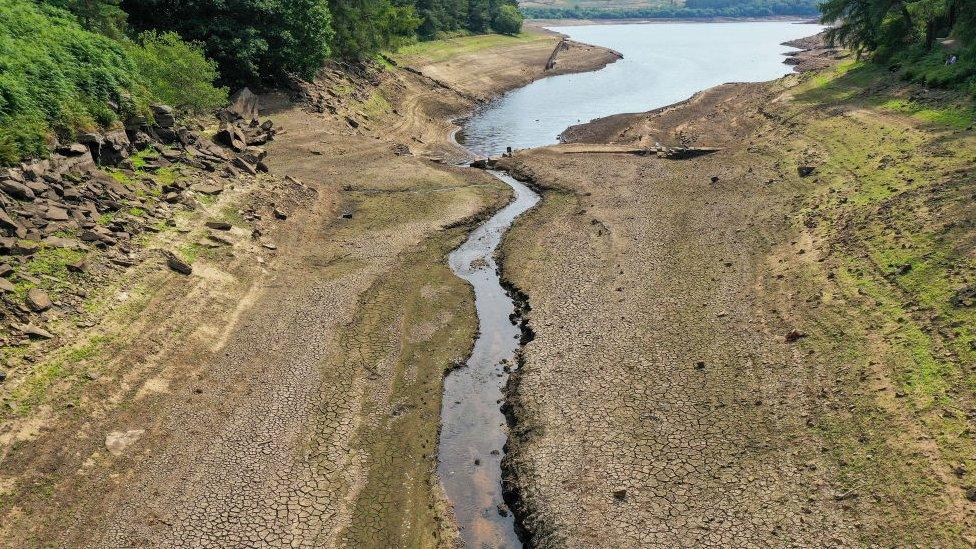
- Published25 April 2023
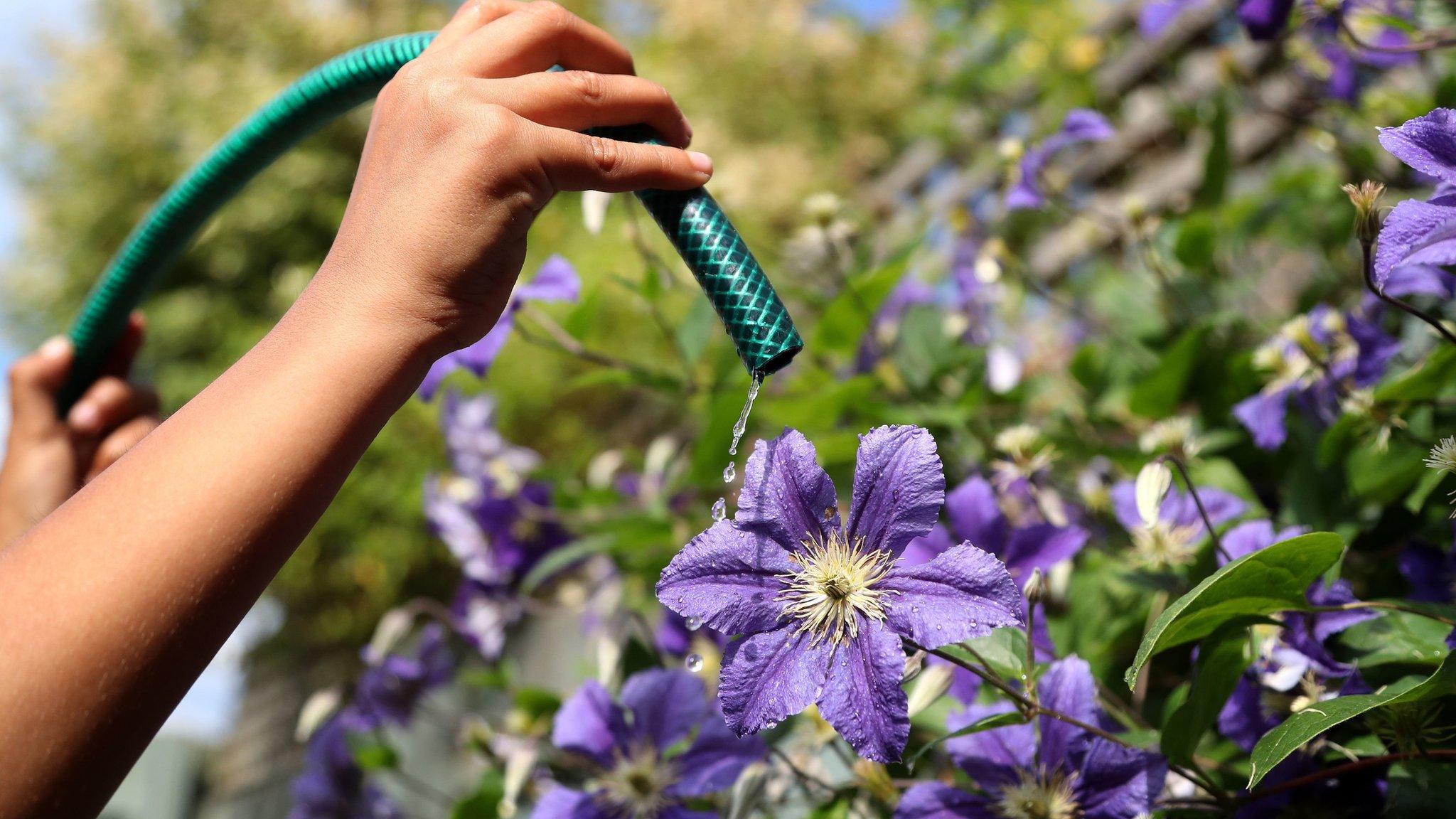
- Published15 September 2022
